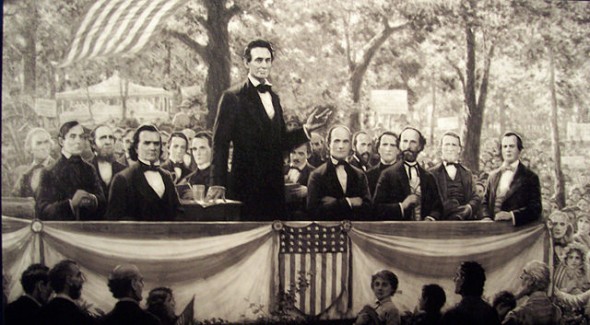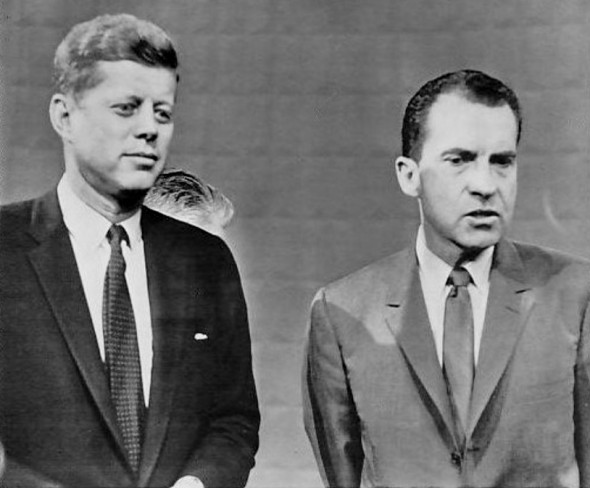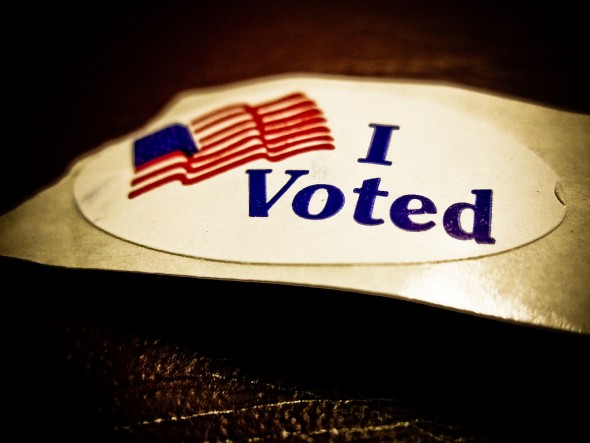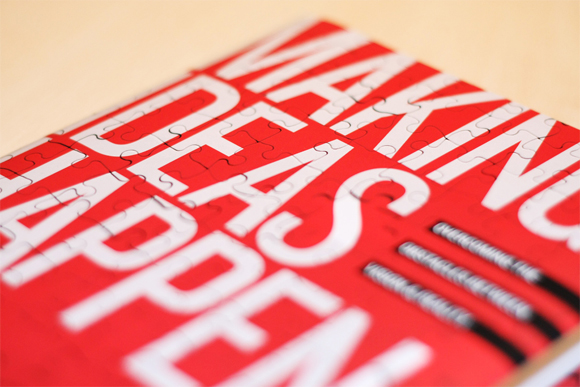By Chandler Longbons
Today it’s hard to escape the reality that presidential elections are a year away. Chances are, if you have a smartphone, a television or computer you’ve been inundated with the buzz about the many candidates vying for nomination. With social media and new technology, the way journalists cover the campaign trail has changed. Everything a candidate says or does now has the potential to become a story. But even before Snapchat and Periscope, journalists tried to cover elections as deeply as possible.
1860- The Lincoln and Douglas Debates
While this example doesn’t reference a presidential campaign (instead for the Senate), this set of seven debates isn’t called The Great Debates for just any reason. At the time, slavery was an important focus that drove a huge public turnout. With rising interest, newspapers hired stenographers to transcribe word for word each debate to be published.

Even though Lincoln ultimately lost this election, these debates are credited with exposing him politically, and leading to his nomination and election as president the following year. This early example shows that while rudimentary by today’s standards, the way journalists cover campaign debates is integral to a candidate’s political future.
1960- Nixon and Kennedy
Flash forward 100 years, when presidential hopefuls faced-off in the first broadcast debate in American history. For the first time, candidates had to not only prepare their platforms, but also their image and body language.

Political views aside, Kennedy’s appearance was more favorable. He appeared tan and refreshed, compared to his opponent who was seemed pale. Kennedy made more direct contact with the camera, and conducted himself confidently. From here out, presidential candidates realized the importance of using campaign coverage to construct their platform and image upon, as journalists coverage began to expand.
2016- Leading up to the Election
In less than 60 years, we’ve come a long way from the first black-and-white broadcast of a presidential debate. Now every primary debate is broadcast on major cable news networks, to millions of viewers. Now we have the ability to follow our favorite candidates on Facebook, Twitter, Reddit and Snapchat. Any off-hand remark, or speech blunder becomes an instant internet headline. Journalists cover stories on topics ranging from candidates ex-wives to failed hashtag campaigns.

In some ways you could say that many of the real issues get lost in the buzz surrounding anything election related. Keeping that in mind, with the extensive coverage and the access that social media and the internet allows us, we are also able to know more about our candidates, and do our own research into their political histories and platforms.
So my question for you guys is:
Do you think social media and the web have done more to hurt or help the 2016 campaigns?


